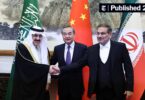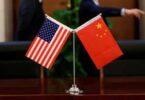Prime Minister Imran Khan has directed the concerned authorities to make the Financial Monitoring Unit (FMU) of the State Bank of Pakistan strong and significantly streamline its coordination with other financial organisations. He said that money laundering is an offence which deserves no pardon and the money launderers should be unmasked before the people. He took a detailed briefing from the high officials of FBR, SBP and SECP.
The briefing to Prime Minister by the financial regulators seems to be in response to the report released by the Financial Action Task Force (FATF) after its recent meeting held in Paris. The International Watchdog on money laundering and terror financing has put Pakistan on the blacklist of countries that have weak anti-money laundering and counterterrorism financing regimes. A 27 points compliance plan was given for implementation to curb this twin menace on which some progress has been made but FATF has listed 10 areas in which satisfactory results are required. The reports also points specific loopholes that still exist in Pakistan’s financial system. It may be recalled that before Pakistan was put on the greylist the New York Branch of Habib Bank Limited was heavily find by the US authorities and was closed on the charges of money laundering.
The fresh findings of the FATF reveal that the financial regulators including SBP and SECP are still failing in their duty to effectively check money laundering. The present government should have taken seriously the mega money laundering scam through fake bank accounts and taken to task the former governors of the SBP. The arrest of Saeed Ahmad ex-President of National Bank, who was rewarded by PML-N government with posting as deputy governor of SBP, and inquiry against him is not enough. Nor the arrest and inquiries conducted against Hussain Lawai former Chairman Pakistan Stock Exchange and the then President of Summit bank along with top executives of Sind Bank and UBL can be a plausible explanation for ignoring the slackness on part of the management of SBP to prevent money laundering through banking channels.
There was a loud talk of making legislation to strengthen the existing anti-money laundering laws but perhaps its submission to the parliament is being delayed because of razor thin majority of the ruling PTI in the National Assembly and absolute majority of the opposition parties in Senate. The international community is now very serious about financial crimes like money laundering as it may also include drugs’ money as well. The Financial Crimes Act has come into force in UK in September, 2017 and in other world powers such laws are operational. In the prevailing global scenario no escape route is available. The passage and implementation of laws to strengthen the legal and institutional framework for curbing the menace of money laundering and terror financing is the right action.






